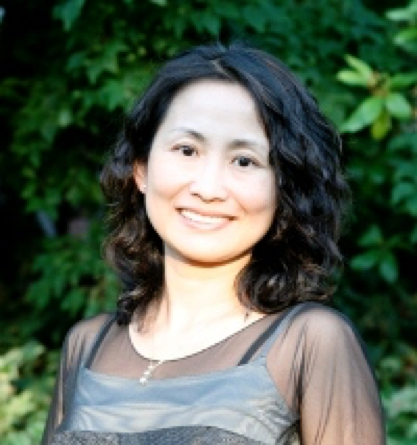
April Z. Gu
Professor, Civil and Environmental Engineering,
Cornell University
263 Hollister Hall
Phone: 607/255-8778
Email: aprilgu@cornell.edu
Biography
April Z. Gu is a professor of civil and environmental engineering at Cornell University. Gu joined the Cornell faculty in January of 2018. She received her B.S. in Environmental Engineering and Science from Tsinghua University in Beijing, China and a Ph.D. in Civil and Environmental Engineering, jointly in Microbiology, from the University of Washington, US. She worked as a process engineer and research scientist for HDR. Engineering where she specialized in water and wastewater treatment processes design for three years before she returned to academia. Gu joined the faculty in the Department of Environmental Sciences at the Northeastern University in 2006, where she served as full professor, COE faculty fellow and program leader for COE Interdisciplinary Bioengineering Graduate Program until the end of 2017. Gu stays active in both academic societies and water professional organizations. She was elected to be WEF (Water Environment Federation) Fellow in 2017. She was also elected to serve on the Board of Directors for AEESP (Association of Environmental Engineering and Science Professors) in 2017.
Research Interests
April Gu’s major research interest involves understanding and applying biological agents (e.g. microorganisms) and their functions to detect, transform or mitigate environmental pollutants in both natural and engineered systems. For the past 10 years, her research has been specifically focused on the following areas: (1) developing novel molecular biotechnology-enabled methods and technologies for reliable and comprehensive water quality monitoring and risk-based technology efficacy evaluation, including toxicity assessment and identification and, biological and chemical contaminants detection; (2) advancing our mechanistic understanding and ability to better optimize and predict biological treatment and remediation processes by developing new tools/methods that enable fundamental cellular-level investigation of microbial behavior and metabolic functions; (3) promoting more sustainable biotechnology for water treatment and remediation through process optimization, energy capture, nutrient recovery and carbon foot-print reduction.
For the near future, Gu plans to focus on the following research topics: (i) probe the impact of climate change on global phosphorus cycling and associated implications in phosphorus utilization efficiency in agriculture; (ii) apply biotechnology to improve and develop more sustainable wastewater treatment and remediation processes to maximize nutrient recovery and, minimize the energy consumption and carbon footprint; (iii) development of next-generation risk-based mechanistic toxicity assessment technology platform, as well as associated energy-efficient and sensitive on-line biosensors for reliable water quality monitoring and treatment technology efficacy assessment.
Teaching Interests
April Gu believes that teaching is a creative act based on passion and dedication; as it requires a variety of skills, strategies and visions. Besides the transferring of knowledge of fundamental concepts and theories, key goals of effective teaching are to generate motivation among the students to learn and develop independent thinking and analytical reasoning. Another honorable and influential responsibility of a teacher as a mentor is to help shape the minds of students with one’s professional philosophy and one’s dedication and enthusiasm to persuade them to become innovative contributors to our society. She values the rigorousness in fundamental science and engineering teaching and therefore emphasizing on structured, yet integrative and complex problem-solving orientated curriculum design.
Her experiences in industry have cultivated her the recognition and appreciation of the importance of knowledge translation. Gu has taught Environmental Biological Processes, Water and Wastewater Treatment Processes, Water Engineering, Resources and Energy Recovery and Fluid Mechanics at Northeastern University.